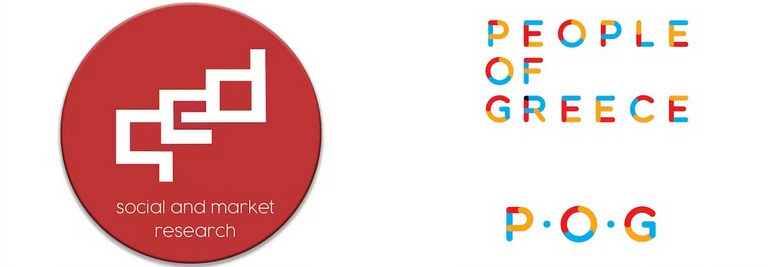
This week, the People of Greece research platform recorded the views of Greeks on the impact of the developments surrounding the investigation of the Tempi accident, their impressions on whether they have received answers to questions about the Tempi accident, their views on the responsibility for the failure to deal with violence in universities, the end of the armed action of the PKK in Turkey, Eurovision and, finally, the television programs on offer this season.
The findings showed that:
- The developments surrounding the investigation of the Tempi accident continue to negatively affect the image of the government, as well as the judiciary, with unabated intensity.
- The vast majority of Greeks state that they have not received answers to the key questions of the creation of a fireball after the collision, the decision to immediately clean up the accident site, and the circulation of two trains on the same railway line.
- The responsibility for failing to deal with violence and lawlessness within universities is symmetrically shared by public opinion both with university administrations for not calling the police and with governments for not allowing police intervention.
- The Eurovision Song Contest is identified with artistic diversity, but also with tactics between countries in the voting.
- Television continues to capture the interest of Greeks, with Greek series and news being the most popular categories and the channels with the most successful productions in these two categories earning the highest audience ratings.
See in detail the opinion of Greeks in the infographics below.
Impact of developments in the Tempi case on political actors
- Three out of four Greeks say that the developments surrounding the investigation of the Tempi accident have a negative impact on their assessment of the government, a percentage that has remained unchanged in repeated measurements over the past three months. The same assessment is shared by one in two voters of the South-Western party.
- These developments do not favor the opposition parties, for which high rates of negative effects are also recorded, except Pleusi Eleutherias, for which one in three Greeks declare that they are favored by them.
- Almost seven out of ten Greeks state that the question of the cause of the creation of a fireball and the question of the cause of the choice of immediate clean-up of the accident site have not been adequately answered, while almost six out of ten Greeks state the same for the question of the cause of two trains running on the same line. The first two of the above questions are considered unanswered by half of the voters of the New Democracy party.



Safety in the University premises
- One in two Greeks “see” co-responsibility of university administrations and the government for not addressing incidents of violence on university campuses, with the percentages of Greeks who attribute sole responsibility to either university administrations or the government being evenly distributed.
- One in two ND voters also “see” co-responsibility, but ND voters tend to attribute responsibility more often to the administrations of institutions rather than to governments.

Dissolution of the PKK
- One out of three Greeks say that the end of the PKK’s armed struggle against Turkey harms Greece because Turkey will turn its attention to the Aegean, while very few say that this development will benefit Greece because it will strengthen peace in the wider region.

Eurovision
- Greeks recognize the diversity of songs and musical traditions as the best element of the Eurovision Song Contest, and the tactics recorded in the voting between countries as the worst element.
- The Greeks of Gen Z view the night of the Contest slightly differently, as on the one hand they project much more the commentary process as a positive element, on the other hand they very rarely mention the aesthetics of the costumes as a negative element.

TV habits
- Greek series and news shows are the most popular television programming categories for Greeks, with Greek series topping the list of interests for Gen-Z and Millennials and news shows topping the list for Gen-X and Baby Boomers.
- This year’s MEGA and ERT programs were recorded as the highest quality programs for Greeks, with younger age groups choosing MEGA’s program as the highest quality and older age groups choosing ERT’s program as the highest quality.


